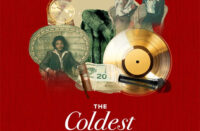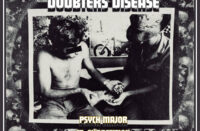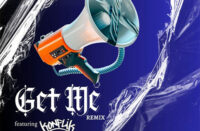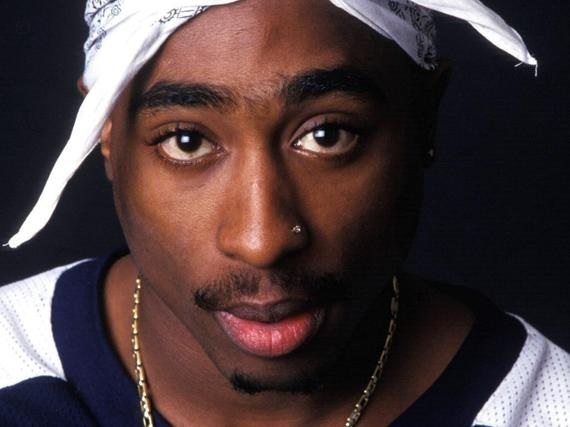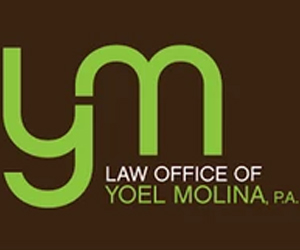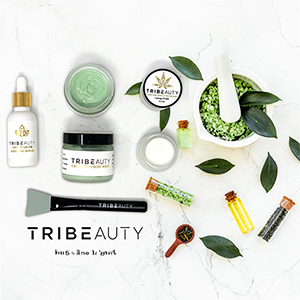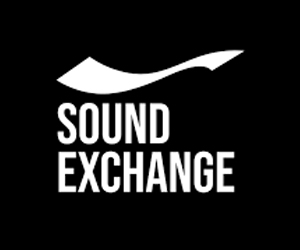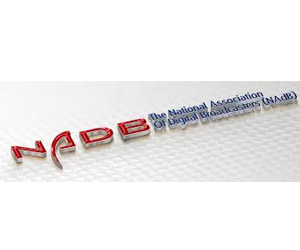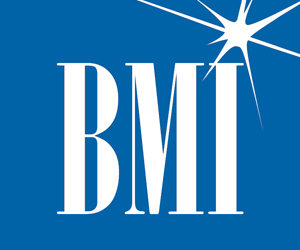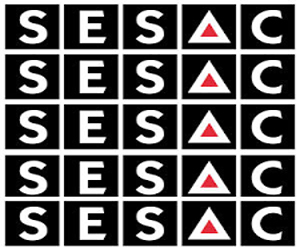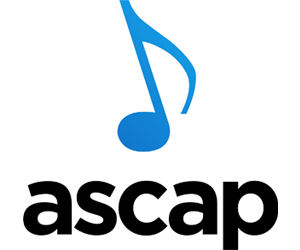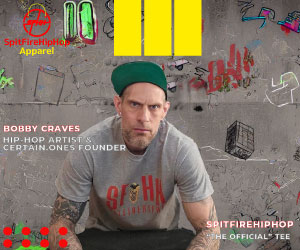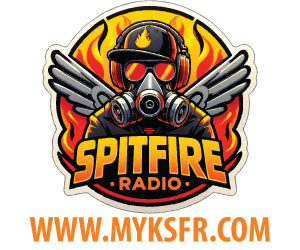Originally published on The Huffington Post
by Kevin Powell
Dear Tupac:
There is a lot I want to say to you, so much so that I do not know where to begin. There is rarely a day or week that I do not think about your life, and your death, since that fateful day on Friday, September 13, 1996. I have tried, at times, and with great failure, to block you out of my head, to ignore the people who’ve asked me mad questions about you, about the circumstances of your death. I’ve been utterly frustrated, even, when it felt, during these past twenty years, like my life, in some ways, and for whatever reasons, is at least partially linked to yours. Maybe I should simply start at the beginning.
When I first heard of you, it was when your debut album, “2Pacalypse Now,†had just been released. We were still in what we now call the Golden Era of hip-hop, when an incredible and diverse range of rap music was being produced, it felt, every single month, from one new artist or another. At the time, groups like N.W.A and Public Enemy were the dominant forces in the art form, and in your lyrics I could hear the strains of both: you were very political and forthright, but also very much a street poet for the people in America’s ghettoes. Only a couple of months after you released that album, a movie called “Juice†came out. I kept hearing about the performance of this young man named Tupac Shakur. At first I did not untangle that you were the same young man whose rookie album had struck a chord with me, especially the songs “Brenda’s Got A Baby†and “Trapped.†I was living in Harlem at the time, the same Uptown part of New York City where you were born, and where you lived until your early teenage years. I went with a friend to a movie theater on Broadway, I think, and there were warnings of pending riots due to this film and its subject matter of young Black men and violence. There was a metal detector at the theater and police officers, including one with a ferocious German Shepherd dog. I was perplexed by this because the movie theater where “Juice†was playing was not crowded. But as a twenty-something Black man, like you were, I understood we were perceived as dangerous, whether on a film screen or in person.
I sat in that dark theater and was mesmerized by your performance. I was struck by your acting chops, by your transformation from one of the boys in a local crew just kicking it, laughing all over the place, to this extremely troubled and villainous character, one who became reckless and evil and on a path toward complete self-destruction. When the lights were raised in that theater I sat there, my heart racing furiously, my eyes gaping at the soda-stained floor, musing on who you were. A few days later I saw or read something about how you were upset that pressure from the Hollywood Reporter had led to Paramount, the film studio, removing the gun on the movie’s poster from your hand. You thought this unfair and racist because there had been plenty of movies with White men posing with guns, but now it was suddenly a problem because a Black male had one. That is when it clicked for me that Tupac Shakur the actor was also 2Pac the rapper. This was 1992, the year in which two things happened to me that would change my life forever. First, I had been selected as a cast member on the first season of MTV’s “The Real World,†a reality tv show. I had no idea what I was getting myself into, but because I had been a student leader and activist at Rutgers University in my home state of New Jersey, Tupac, I knew the history of America, the history of stereotypical images, and how Black folks had been depicted time and again. I vowed to myself that I would not go on national television and be some cartoonish buffoon of a Black man. I did not know that some of the conversations and encounters with my majority White roommates would lead to wild and heated debates with them about racism, but I was clear that I was going to be my whole self, whatever that meant. The show became a ratings hit and took on a life of its own, I was both loved and hated for my so-called character, and I was told many times by young people, Black people and White people, that they had never seen a Black person like me on national television before. Meanwhile, as I was taping this MTV show, the legendary music genius Quincy Jones had formed a partnership with Time Warner to start a new hip-hop magazine. It would eventually be called Vibe. As rumors circulated about what Quincy was doing, I, a poet and journalist who had moved across the Hudson River to New York to pursue my dream of being a writer, was determined to get down with this thing called Vibe. All I wanted to do, Tupac, was get an assignment for a small record review, to be down with Quincy Jones. Perhaps because of my shaky self-esteem born of a life raised in the ghetto by a poor single mother, and perhaps because I did not yet know what I was capable of as a writer, I did not think big, did not think that something greater was waiting for me there at Vibe. I did get a record review, but I was also asked to write a longer article about the hottest rap group in the nation at that time, Naughty By Nature, with a particular focus on its front man, Treach. I knew that Treach was your great friend, your homie, that he had also auditioned for the role of Bishop, your role, in “Juice,†and that your audition was so extraordinary that you wrestled that lead role from Treach and everyone else. I also saw that you were in Naughty’s music video for “Juice,†“Uptown Anthem.†I never mentioned your name to Treach as I conducted that interview. I was as impressed with Treach as I was of you. In hip-hop, my culture, our culture, I knew that I had found the vehicle, through the rappers and deejays and graffiti writers and dancers, by which I could express everything I had ever felt in my life as a young Black male in America. Indeed, as a teenager I breakdanced and I also tagged with magic markers my graffiti name—“kepo1â€â€”on walls and school lockers, and here I was, through sheer determination, a journalist documenting the bravado and stress and excitement and recklessness and against-all-odds mentality. Treach represented that, and you represented that, Tupac, and I felt that artists like you, young as you were, young as I was, understood that.
Much to my surprise, ‘Pac, that article on Treach and Naughty By Nature became the inaugural cover story for Vibe magazine, as it made history and sold out completely. It was now the Fall of 1992 and here I was suddenly well known because of MTV and Vibe. I did not know what to do with this newfound celebrity, was absolutely terrified of it, to be honest, tried to hide, at times, and knew, in my bones, that I had demons, many demons. Indeed, in that same September of 1992 that my Vibe cover story appeared, an essay I wrote for Essence, the Black women’s magazine, was published called “The Sexist in Me.†It was a raw and real account of what I was grappling with as a young man who, only a year before, had pushed a live-in girlfriend into a bathroom door in the midst of an argument. I did not know it then, Tupac, but I would never do that again to a woman, would become a man who not only challenged my own sexism, but would find myself working with men and boys of every background around how we defined manhood—on college campuses, at community centers, in prisons, with college and pro athletes. But in those days, I was merely trying to do my best not to die young, not to hurt myself, and not to hurt anyone, even as I failed, miserably, many times.
Vibe‘s stunning success pushed it into becoming a full-fledged magazine. I cried when I was hired to be one of the three writers, because, since I was a boy, I dreamed of seeing my name in print somewhere anywhere, in that way. At our initial staff meeting, I was asked who I wanted to write about. Without hesitation I said you, Tupac Shakur, and put on the conference table a thick folder about you and your life that I had been keeping for over a year. I was ready. I had studied your mother Afeni Shakur, I knew of her life in North Carolina, about her move as a young woman to New York City, how she joined the Black Panther Party and wound up in a scandalous case called the Panther 21, allegedly part of a plot to destroy several New York landmarks in response to the oppression of Blacks in America. It blew my mind that I, a young activist, had come across someone like you, Tupac, with your background in both activism and hip-hop. When I presented my idea to the Vibe team the reaction was indifferent. Truth be told, Tupac, you were really only known by diehards in rap circles, and “Juice†was a cult film, and not considered on par with “Boyz N The Hood†in terms of critical acclaim and mainstream appeal, your remarkable performance notwithstanding. Regardless, I was disappointed, felt rejected, but dutifully accepted the task of reporting on Snoop Dogg, who was, in 1993, the most anticipated new music artist in America because of his association with Dr. Dre and the blockbuster album “The Chronic.†But I also quietly kept my Tupac folder close, and continually added things to it. And around that same period, in the Spring of 1993, we met for the first time.
I remember it vividly, ‘Pac. It was in Atlanta, Georgia, at a crowded and electric music conference called “Jack The Rapper.†It was named after iconic radio personality Jack Gibson, who like other pioneering Black deejays and personalities in the 1940s and 1950s would speak, live on air, in the same rhythmic patterns that hip-hop heads would deploy years later, on records. I was with my friend Karla Radford, who was the assistant to Vibe president Keith Clinkscales. We were in the conference’s hotel lobby and there you were, surrounded by a gigantic throng of women and men, both equally in awe of who you were—rap star, movie star, the celebrity it person of the moment. You were the polar opposite of most rappers because you were also a certified sex symbol, undeniably one of the most attractive and photogenic pop culture had seen. You were hip-hop’s Rudolph Valentino, or Harry Belafonte, or Brad Pitt. There were the jet-black bushy eyebrows framing the top of your cocoa-colored face; there was the ridiculously long eyelashes fluttering whenever you smiled; there were the bulb-like almond-shaped ebony eyes and the meticulously groomed mustache and goatee; there was the sloped Africa-meets-Native America nose capped with a stud jewel on the left nostril; and there was the perfectly round bald head, either bare or crowned by one of your ever-present bandanas.
However, I was actually there at this music conference because of Snoop, but Karla knew how badly I wanted to write about you, and she prodded me to go over and meet you. I refused. I said I was not going to be one of the many people hero-worshipping you. Undaunted, and bold as she was, Karla marched across that lobby, shoved herself right in front of you, Tupac, and said you needed to know me, and that I needed to know you, because I was going to write a big story on you. To my surprise, ‘Pac, you turned and looked in my direction, smiled that trademark toothy grin of yours, and said that you were a fan of mine from the MTV show, that you had my back whenever I was beefin’ with the White folks, and that you would be happy to do an interview with me. And that is how it began, a three-year journey where our paths would cross in Atlanta, Los Angeles, New York City, and more changes for you and I than either of us could have ever imagined.
And it was because, ultimately, the leadership of Vibe came around to my profiling you, given that you could not keep yourself out of the news, or controversy. In that warped way we think in the industry, you were suddenly “hot.†Our first sit-down interview, in Atlanta, Georgia, was at a house you either rented or owned, I do not remember. What I do recall was that there was barely any furniture, except for the sofa we sat on. And your mother Afeni was there, too. She was strikingly beautiful. Smooth chocolate brown skin, wide, alert eyes, a smile and laughter as infectious as yours. Because Afeni was a single mother, the way my mother was a single mother, and from the South, the way my mother was from the South—South Carolina—I was divinely drawn to her. Your mother recounted for me what was in my notes: how she was arrested, while a Black Panther, and was in jail up until a month before you were born, on June 16, 1971, in New York City. How she was given scraps of disgusting food, was afraid she would lose you, her baby, her first child. When she spoke, when you spoke, you both smoked cigarettes. You both had a jumpy energy about you, like you both were always worried about time, about what you were supposed to be doing next. When I got to speak with you, Tupac, do you remember that one of the things you said to me was that you wanted me to be the Alex Haley to your Malcolm X? I thought to myself, with a wicked smile, “But what if I want to be Malcolm X, since I am an activist, too, and he is very much my hero?†However, ‘Pac, I understood what you were saying, that you trusted me to tell your story, that I was the writer you wanted to give it to. I vowed that I would do my best and spent a lot of time with you and your mother, soaking up every detail of your lives, together and apart, not knowing, in that Atlanta house, that this would be the first in a series of conversations with you, Tupac. In that first article, I said you were the James Dean of the hip-hop era. Dean was rock and roll’s rebel, and you were ours, with a backstory straight outta American history.
The traumas and difficulties of your mother and her family growing up in segregated North Carolina. The story of how your mother sat and watched, as she put it, the Civil Rights Movement, on television while there in the South. Why your mother up and decided, one day, to move to New York, not only to join other family members, but to also join the movement. How she was so drawn to the Black Panther Party, and admitted, with a girlish giggle, that part of it was because the men were so handsome and sexy in their all-black outfits. How Afeni became radicalized, and got involved in political and educational struggles in places like Brooklyn, New York; how she read and studied and got pregnant by your biological father, Billy Garland. How she got arrested and was charged, along with twenty other members of the Black Panther Party chapter in New York City, with several counts of conspiracy to bomb police stations, department stores, and other public places in New York. How your mother sat in that jail cell wondering, again, if you were going to live, wondering if she herself was going to survive. How you were born just a month after Marvin Gaye released his landmark album “What’s Going On,†how that album could have been the soundtrack for you and your mother, Tupac. How your mother, in the tender caresses of her love, would sing a song by the Five Stairsteps, “O-o-h Child,†to you, when you were a restless baby, and how you would sample that song for one of your biggest hits, “Keep Ya Head Up.†How you and your mother and your little sister Sekyiwa moved around the Bronx, Manhattan, how you all struggled with poverty, and Sekyiwa’s dad, your stepdad, the activist Mutulu Shakur, wound up in prison. How your mother told you that your biological dad, Billy, had died, and how you accepted that as truth. How you and your mother and sister landed in Baltimore, how you found yourself, in due course, at the Baltimore School for the Arts, met your friend Jada Pinkett there, met yourself as an actor and rapper there, and then it was over and you and Afeni and Sekyiwa had gone again, this time to Marin City in the Bay Area. Leaving that high school shattered you, and changed you. You were dejected, ‘Pac, you told me, because you were leaving the one stable place you had ever experienced, that performing arts high school, and you were changed, too, because it was in Northern California, that your mother would succumb to a vicious crack cocaine addiction and you found yourself floating, a man-child, searching for a family in the gutters of your third urban ghetto.
This is the life that we lead, those of us who were born and raised and suffered and have died fast and slow deaths in the underbelly of American poverty. There, outwardly, is no hope, no possibilities, and no future for us, Tupac. We live day to day, we make it, with fear and trepidation, day to day. And we are given three lanes, as Black males, with which to try to escape: be an athlete, be an entertainer, or be some kind of a hustler, legal or illegal. There was no high school graduation for you, Tupac, there was no college education, there was no consistent support system except that which you found or stumbled into, like the local criminals, like Leila Steinberg and Atron Gregory, your first managers, like Digital Underground, the rap group that embraced you as a roadie, then a dancer, and finally gave you the break to be a rapper. That was your story, Tupac, but tragically, in post-Civil Rights America, in the America that has given us everything from the Reagan Revolution, to the Clintons’ welfare reform and crime bill, to Trump’s “Make America Great Again†mandate, it was and is abundantly clear, ‘Pac, that Black boys like you and I were and continue to be on the receiving end of a sick and cancerous racism and inequality as old as this nation, and as hypocritical and hazardous to our existence as anything ever seen in so-called Western civilization. To remix one of your verses, we were given this world, we did not make it. These are our truths, ‘Pac, and you spoke for generations alive and those not yet born in expressing our rage and our disgust and our anxieties with a system seemingly hell bent on detouring and arresting our development at every turn, simply because of the color of our skin.
Meanwhile, I watched you morph into a major superstar and also a young man with criminal cases spread from New York City to California. You never could stay out of fights or confrontations with citizens or the police, and never could quite control your raging emotions. I never shied away from you because your anger was my anger, your pain was my pain, your demons were my demons, and you were caught up, and so was I. When any child, you, I, any of us, has experienced hurt, abandonment, abuse in multiple forms, ‘Pac, it is going to come out of us in some way. For you and I that meant through our art, our writings, and through our actions and behaviors toward others. You fought, Tupac, and I fought, too. Yours was far more public than mine, but my God did I know what it was to feel slighted or disrespected by people. My God did I know what it felt like to want to belong to something, to belong to someone, anyone, who would show love. And my God did I know what it felt like to feel as if you were attacked, always, for being who you were, because you were not understood, because there were forces out there who did not want to know or understand you as a whole human being.
And then you caught that rape case, that sexual assault case, Tupac. It devastated you, and it devastated your many women fans. Not Tupac, not you. You said you were innocent, that you of all people would never do that to a woman. You pointed to the lyrics in your song, “Keep Ya Head Up,†how it was an anthem for women, how it revealed that you were pro-choice, pro-feminist, anti-rape and anti-street harassment. But something had happened in that hotel room, ‘Pac—something. And while on trial for that case, a trial that did not include most of the other men arrested with you at the hotel that night, for whatever reasons, you were shot, five times, including in the head, while entering a midtown Manhattan recording studio lobby with two friends. They were not shot. I remember being awakened by the news, dumbfounded that you were still alive. You gave a middle finger to photographers who showed up instantly at that recording studio to capture you as you were wheeled into an ambulance. You defied doctors who told you not to go to court and showed up anyway, bandaged, in a wheelchair, looking fragile and weak, but determined to beat this case you maintained your innocence around to the very end. It did not matter, as you were sent to jail anyway.
It was at that prison, the infamous Riker’s Island, that I was summoned to do a jailhouse interview with you, Tupac. Do you remember that scene, man, how you were wearing a white tee shirt and the prison pants, how you and I sat at a long table, and there also were correction officers, your lawyer, Michael Warren, your publicist Karen Lee, and our Vibe photographer Dana Lixenberg? Do you remember, ‘Pac, how you sucked on cigarette after cigarette, and how incredibly stressed and anxious you were as you recounted every intimate detail of how you met the young lady at a nightclub in New York City, how she performed oral sex on you on the dance floor, how you had sex with her that first time at your hotel, how you thought that that was it? Do you recall how you described the second hook-up with her, how you said your friends were more eager to see her than you were, how you left her in the bedroom at one point, not knowing that your friends, who you really did not know well, went in there, how you left the room and passed out, and when you woke much later, how you were told the police were waiting for you? Do you remember, Tupac, how you shared, blow by blow, how you were shot that night at that recording studio, how you were approached, targeted, hit with bullets? Or how, bleeding, you got on the elevator after the shooting and went upstairs to the session that had been waiting for you, and the looks on the eyes of the folks there, famous music industry folks you would name, one by one, in this interview with me?
In the midst of all of this, Tupac, I did not know, fully, what I had gotten myself into with you. I believed in you, your life, and wanted to tell your story, fairly. That was it. I listened, in that jailhouse interview, when you admitted vulnerability, failure, and took responsibility for not protecting in any way that young woman in that hotel room. You were adamant that you did not rape or sexually assault her, but never before had I heard a man, of any age, let alone as young as you, say you should have stopped those other men. It did not matter, Tupac. You were convicted of something I cannot recall right now, and so was your close friend and road manager Charles “Man-Man†Fuller, and you were first there at Riker’s and then sent to an upstate New York prison. I cried when a new song by you, “Dear Mama,†was released during this chaos, ‘Pac. With your throaty baritone it was not only the most majestic and melancholy tribute I had ever heard a son give to his mother, but it was, like many of your best songs, an autobiography and a eulogy for your life—a life that I was praying, mightily, would not end soon.
I believed you, Tupac, when I left you that day in jail, when you said you were going to be a new person, that you wanted to be a leader, that you would learn from your mistakes. This was the beginning of 1995, but by the Fall of 1995, when you were bailed out of jail and now officially on Suge Knight’s Death Row Records, something had happened to you. When I showed up on the set of the “California Love†video for you and Dr. Dre, the universe was off, and it felt like a torrential thunder storm in that sunny Cali desert. There was talk everywhere now of a war between East Coast and West Coast rappers, and you were squarely in the middle of it, Tupac. When I reflect back on this “war†I think what I thought privately in the 1990s, that this was a classic case of divide and conquer of Black folks, of famous musical artists and executives. And I feel that there were forces unseen manipulating you, manipulating everything, for the sake of record sales, and also to undermine both your political legacy, ‘Pac, and any unity and peace that could have been broached in the hip-hop nation. You became a willing pawn in that game, perhaps because you needed and wanted the money, and perhaps because you had become addicted to the celebrity, and to the drama and sensationalism that was your life. I knocked on your trailer on that video set, and when the door was swung open, a stink gust of marijuana smoke punched me in the mouth. The same Tupac who had told me in that prison interview he was going clean was smoking more weed than ever. You also were very distant in your limited chatter with me that day. Our connection was barely there, if not gone entirely. I was not given an opportunity for a sit-down interview during that trip to Los Angeles. I got to converse with everyone else for that LIVE FROM DEATH ROW Vibe cover story, including Suge, Dr. Dre, and Snoop, but not you. I do not know why I was kept away from you, and little did I know that the set of the “California Love†video would be the last time I would ever see you alive.
Before I left California, I was told I could speak with you on the phone by the Death Row Records publicist, George Pryce. Do you recall, Tupac? When you answered and realized it was me once more there was distance, coldness. You told me to hold on while you got your cigarettes. You had been waiting months to get things off your chest. You told me that you were pissed that we had altered some of the names in the Vibe prison interview. I could not tell you everything, ‘Pac, as I never wanted to cross that line between journalist and friend, but the fact is we had to change some of those names for legal reasons, because we, and you, could have been sued, and because, Tupac, I was trying to protect your life as best I knew how. You literally had named people as suspects or accomplices in that Manhattan shooting, with no proof whatsoever. We could speculate, you had your theories and I had mine. That did not matter to you. Your point was that you tried to give me the unfiltered and true story and I did not use it. We talked on, about your life after prison, about how you felt betrayed by so many, about your plans as an artist and businessman. When the topic flipped to the beefs between you and Suge’s Death Row label and Diddy’s and Biggie’s Bad Boy Records, you were defiant and coy. Same with whether you had a relationship with Faith Evans, Biggie’s wife. What I remember most, Tupac, is when I asked why you and Suge and the Bad Boy camp could not sit down and settle any differences, you said that yellow M&Ms and green M&Ms do not go together. You, a native son of the East Coast, of New York City, had eternally staked your claim in California, in the West Coast, and that was it.
Our phone call ended, and I stared blankly out my Los Angeles hotel window for a very long time, ‘Pac. I would never speak with you again. That was December 1995. I followed you those final nine months of your life, but there was a great sadness that always hung over my thoughts of you like an ominous cloud. I saw you, Tupac, as someone who could have the multi-generational impact of a Bob Dylan, a Nina Simone, a John Lennon, a Joni Mitchell, a Bob Marley, your poetry was that powerful, that emotionally naked, your potential that limitless, that ridiculous. You were not the greatest rapper ever—no—but you had great moments fueled by a Black Panther’s passion and a prophetic purpose. And in the annals of African American protest literature you were, with your one mic and your pen and pad, the working-class jazzy wordplay of Langston Hughes, the blunt, boisterous storytelling of Richard Wright, the preacher’s slashing, quick-tongued prose of James Baldwin, and the ego-tripping literary gumbo of Nikki Giovanni. And you had the singular ability to be a bridge-builder, or a bridge-destroyer, depending on your Gemini mood. How many could say they were able to socialize with a Madonna or a Mickey Rourke, or walk the runway of a Versace menswear show in Milan, Italy, and be equally comfortable around dingy street corners, eyeless, ghost-filled alleys, and alcohol-fused house parties in America’s inner cities?
Yes, I saw you, ‘Pac, but I did not see myself, falling. In May of 1996 I was fired from Vibe after getting into a series of arguments with staffers. I was devastated and cried long and loud in the office of the magazine’s president. That Olympic Summer of 1996 I spent much of it in a drunken stupor. Then, when I heard you had been shot a second time, in Las Vegas, right after a Mike Tyson heavyweight championship fight, something in me was stirred. I first called Vibe, out of desperation, and asked if I could go to Vegas to cover your shooting. They flatly rejected me. I next reached Rolling Stone, where I had begun my career as a music journalist two years before MTV and Vibe, and I was promptly dispatched to Vegas. It was surreal, Tupac, that Las Vegas is where you laid, in a hospital, holding on to the shreds of your life. I was warned by several people to be careful, not to be seen, because of the ugly rap tensions between East and West. I ignored those warnings and went right to that intersection, Koval Lane and Flamingo Road, where you had been shot several times in the passenger seat of a car driven by Suge Knight. I questioned how you were struck but he was not. I had a faint hope that you would make it, when I spoke with Kidada Jones, your girlfriend and the daughter of Quincy Jones, because she told me you would. I believed her, prayed to every God I knew of for you not to die, Tupac, not at age twenty-five, not with so much left for you to do. You had been gunned down on Saturday, September 7th, and with each passing day that you held on there was a belief, throughout the country, that you were going to make it, again. Because you were our mythical hip-hop superhero who had withstood gun shots and lived. Because you were the boss behind “Thug Life,†the ‘hood movement you created, your version of Dr. King’s “Poor People’s Campaign.†Because you had turned your body into an artistic canvas crammed with tattoos as we had never seen before, those tattoos your shield, your bullet-proof vest. But on Friday afternoon, September 13, 1996, I was sitting in my hotel room re-watching Denzel Washington play Malcolm X in the Spike Lee film when my friend and Newsweek journalist Allison Samuels called me. It was right during the part when Denzel, as Malcolm X, was heading to the Audubon Ballroom, where his assassination awaited him. Eerily, my favorite song ever, Sam Cooke’s “A Change Is Gonna Come,†played as this scene unfolded, and right then Allison’s call: “Kevin, Tupac is dead. We have to go to the hospital.â€
I was numb. I did not cry in that moment. I was just numb, ‘Pac. I was in a state of shock, and had no idea what emotions should come out of me. At the hospital there were folks and commotion everywhere, including many cars, SUVs, and Hummers riding back and forth, blasting your music. When Suge Knight showed up, with no visible wounds, there was both terror and amazement. I remember, Tupac, that many of us, including me, shifted away from wherever Suge was walking because, we thought, best to not be in the way of any bullets aimed for him. That night I went back to that intersection of Koval and Flamingo where you were gunned down, and prayed and bawled like a baby and drank liquor and poured some of that liquor out on the ground, as we do in the ghettoes, for our fallen soldiers. Tupac Amaru Shakur was gone.
I have not been back to Las Vegas since that day you died, ‘Pac. I have not wanted to, I could not bring myself to do so. That city is forever branded in my mind with death, your death. Twenty years have come and gone and I still do not know when I will return there. Six months after you were killed Karla, the same Karla Radford from Vibe who had introduced you to me, called me in the wee hours of a March morning in 1997, and said, through tears, “Kevin, Biggie— They killed Biggie.†Yes, The Notorious B.I.G., first your friend, then your rival, was killed, too, at a Los Angeles Vibe party Karla had event produced no less, under the same mysterious circumstances as your death, Tupac. We did not know where the bullets were coming from, and I was frightened that I would meet a similar fate because of my relationship to you. So I drank more, drank myself, for the next several years, through a debilitating depression, some of it because of the breathing and nasty scar tissues of my own life, Tupac, and some of it because of what had happened to people in my generation, like you, like Biggie. I did not want to live, tried, at times, to muster the energy to write a book about your life, but was always concerned about appearing to profit from you, from your death. There were many problems with the estate set up after your passing, but I did my best to stay in touch with your mother and your sister, ‘Pac, to be supportive. I was threatened with death, once, eyeball to eyeball, by one of those male friends who was with you the night you were arrested at that hotel, because he was enraged by my commentary in a video interview implying indirectly who I thought may have had you shot the first time, Tupac. I sincerely believed that he was going to make good on that promise. Somehow, mystically, and but for the grace of God, the threat disappeared. Around that same time, I appeared on a BET program about your life and death, and Suge Knight was also a guest. Right on the show he tried to bully the other panelists, including me, and as we broke to a commercial the ghetto dude in me said, without blinking an eye, “Ain’t nobody scared of you.†After the taping Suge stepped to me and said we could settle whatever the problem was in a nearby bathroom. That did not happen, but I found myself, in the early years after you died, looking over my shoulder, mad paranoid that I felt too much, knew too much, and had invested too much of my life into your life, ‘Pac. Nonetheless I accepted your mother Afeni’s request to consult the Oscar-nominated MTV documentary film that was made about you, using your own words. I tried the best I could to rid myself of you, Tupac, keeping it a hundred, because I did not want my life to be dependent on yours. I went back to my activism after finally coming out of that very bad depression, wrote as much as I could, and found myself doing speeches around the country, to help and heal others, to help and heal myself. Between your death and tragedies like 9/11 and Hurricane Katrina, the naivete of my youth was gone forever. Because of my lectures and activism work, I traveled more than ever, and duly noted wherever I went, that your name came up everywhere, in some way. It was profound to hear folks in the West Indies, in Europe, in Japan, and in my first ever trip to Africa reference you, Tupac. Like you were not dead at all. It was profound to witness the many documentaries and books come out, by some who knew you, by some who did not, purporting to tell the truth about your life, about your death. There was a hugely hyped but poorly conceived Broadway show based around your music. And I’ve mostly avoided prying journalists hoping to get from me something that would help prove their theories. I have sat on my interview tapes with you and your mother these many years, resisting folks’ offers to purchase, or license. And only in the past few years, Tupac, have I decided, finally, to write a book about you. But even with this book deal in place, I have wavered several times, about writing it, when to write it, or if I truly want to write it. Part of me does feel an obligation to tell your story the right way, Tupac, and part of me wants to walk away from it, and you, for good. I’ve even struggled with the thought of this new film about your life, a film that your mother was sued over to force her to participate in, because of the sloppy business dealings of her representatives, years back. Part of my soul does not want to see the film because I lived through this, already, ‘Pac, I know the story, I know it as I know the blood in my own body.
So life goes on, and here I am speaking with you, again. The way I spoke to you maybe ten years ago when I just happened to be in the area of North Carolina where your mother had purchased an organic farm. When Ms. Shakur, as I always called your mother, heard I was there, she insisted I spend the night on her property. I was put in the guest house right next to the tomb that contained some of your ashes, Tupac. I did not sleep well that night. I cried that night, too, and I listened as your spirit spoke to mine. It was not any special words, or message, just that old familiar connection. Earlier this year, when your mother died of a heart attack, unexpectedly, on a boathouse where she lived not far from that same Marin City neighborhood you all had moved to many years back, I cried for her life too, ‘Pac. The last time I saw your mother was, I think, in 2012 or 2013, I cannot remember which year, when she had invited me to this boathouse. We sat there and talked about you, about her, about life, about forgiveness, about love. I always wanted Ms. Shakur to know I wanted the best for her, for Sekyiwa, for your memory, Tupac, that I was not one of those individuals who wanted to profit in any way from you or your life. She said she knew this, and understood. We hugged, I was very happy to see your mother, and every now and again I would get a message, in the time before she died, that she was thinking about me, that she knew what was in my heart. I wanted to pay my respects to your mother at one of the memorials for her, but circumstances and time did not allow that, ‘Pac. I know she is at peace where she is now, because Ms. Shakur has been reunited with you, her son, the son she loved so dearly. In watching you and your mother through the years I have come to love and appreciate my own mother and what she went through and sacrificed so that I could live, Tupac. There is no greater love than a mother’s love, even when our mothers are not always able to express or show that love.
Finally, you would be stunned by what has happened in America, Tupac. So much of what you rapped about, spoke about, were about, remain the same, or have come to pass. You once said to me that if the millions of diverse young people who bought your music ever voted magic could happen. Well, that did happen, in 2008, with the election of Barack Obama as this country’s first Black president. But we’ve also gone backwards, ‘Pac. Racism is alive and well, and so are racial profiling and police brutality cases, like the one you experienced personally in Oakland, California. Violence against women and girls is worse than ever, and I have wondered how you would have evolved from the lyrics of “Keep Ya Head Up,†from the sexual assault case, to a different kind of man, because there were multitudes who believed in you, who believed in your possibilities as a rapper, as an actor, as a leader, as a man. You spoke to me regularly about the need for people to stand up and protest injustices. I think you would be very proud of things like Occupy Wall Street and Black Lives Matter, that that movement was mainly started by and is propelled by women, by Black women as powerful as your mother Afeni. I think you would be in awe of the simple and quiet protest of football player Colin Kaepernick, that someone with his platform is as unafraid as you were to tell his truth, for the people. But there is so much hatred and fear and division and violence and ignorance out here, ‘Pac, and I am sure you know, as I do, that that has always been the case. Yet, I feel, it is worse than ever, the dumbing down, of the music, of the culture, of our society. With the exception of, say, Kendrick Lamar, J. Cole, The Roots, Macklemore and Ryan Lewis, or Lupe Fiasco, hardly any major rap stars of this twenty-first century have your courage and your vision and your insatiable hunger to learn, and to think, out loud, and to grapple, out loud, Tupac, and to be a fearless voice for justice. That is why I’ve used you as an example in so many ways, when discussing race, or gender, or the pitfalls of fame, even mental health. When it was revealed that Nate Parker, the director and star of the astonishing film “The Birth of Nation,†had a college rape case in the late 1990s, I reminisced obsessively about your case, about what toxic manhood means, what we men and boys must say and do, steadfastly, to end this abusive madness once and for all. I wondered what it would be like for you, Tupac Shakur, to be alive in the era of 24-7 social media and viral videos, given the intense and heavy scrutiny you faced in the 1990s. I have used your comments around taking responsibility for what you did not stop on behalf of that young woman in that hotel room in countless workshops and sessions with men and boys everywhere. I’ve pointed, time and again, to how you saw the splendor and dignity in your mother even at the lowest point of her drug addiction. Yours was a messy and complex life, sir, as it is with any of us. The difference is that you lived your life, at least the last five years of it, with a massive and unimaginable spotlight on you. You only wanted to hear your record on the radio, you told me in our first interview. Well, sir, you did that and more than you could have dreamed. In a world that often renders us poor Black boys as invisible your name is permanently tagged on the erect, mud-smeared walls of history.
But you are us and we are you, Tupac, this I know, because you were very much a man, a human, and a person of the people, all people. There are many imperfect and damaged beings out here, my friend, as you were a very damaged and imperfect being. But what made you different, unique, is that you were never hesitant to speak your mind, never hesitant to show each side of who you were, ‘Pac. You were an example of freedom and vulnerability in its purest forms. And just like you did not agree with everything I said or did, Tupac, I did not always agree with you or your actions, and I still cringe when I listen to some of your music or watch or hear some of your interviews with various journalists. I have had a chance to live, Tupac, past our 20s, and you did not. I got to work on myself, got to do years of therapy, and heal, emotionally and spiritually, in many ways you were not able to do in your lifetime. I am still doing that work, ‘Pac, because the pain never ends. You were never able to do that work, to turn the corners you needed to turn, because yours was a short and fast life. I met your father, Billy Garland, a week or so after you died, the father you thought was dead until a couple of years before your own death. That meeting with him, clumsy, difficult, strange, sad, tragic, was the beginning of a long process of my coming to forgive my own father, ‘Pac, because my dad was not there for me, either. You, I, we, Tupac, were boys, children in men’s bodies, searching for ourselves, searching for fathers and father figures and, yes, love, here there everywhere, even when it took us to troubled and violent places, outside, and inside ourselves. Thus, alas, I cannot deny that you have touched lives, millions of lives across the globe, including mine. And it is my humble opinion, Tupac Shakur, that in some small way, that I also touched yours, and that wherever you are now, you know that I, your brother, have been carrying you around with me these many years since Las Vegas, because I have no choice. You are me, and I am you.
Sincerely,
Kevin
Kevin Powell, writer, activist, public speaker, is the author of 12 books, including his critically acclaimed autobiography, The Education of Kevin Powell: A Boy’s Journey into Manhood. You can email him, kevin@kevinpowell.net, or follow him on Twitter, @kevin_powell


